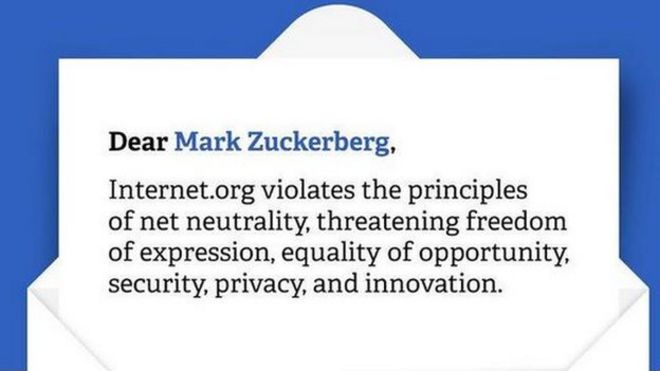WHAT'S NEW?
Loading...
Facebook's Internet.org: Greed Masquerading as Charity
Internet.org is Facebook's effort to expand Internet access into less fortunate areas of the world in order to improve life there. Or at least, that's what they make it seem. Sure, it may do just that for the people there, but it is motivated by nothing but greed on Facebook's behalf. When Internet.org installs Internet access in these places, they offer a very stripped down version of the web. Not only does this version explicitly violate net neutrality, but it strongly benefits Facebook and makes them a monopoly in these areas.
Internet.org only allows for the use of pre-approved websites over its network, which includes, of course, Facebook. They say that this is a necessary measure in order to keep the bandwidth usage down and optimize sites for slower devices and networks. Really, this creates a walled system that discourages innovation and threatens the very freedoms that the Internet stands for.
"It is our belief that Facebook is improperly defining net neutrality in public statements and building a walled garden in which the world's poorest people will only be able to access a limited set of insecure websites and services," stated an open letter to Internet.org, signed by 67 Internet rights groups.
Internet.org also discourages the use of encryption and security of the websites that are allowed on its service. This puts the privacy of everyone who uses it at serious risk. Sure, I know what a lot of people are thinking. "Aren't these limited websites a lot better than no websites for the people who are receiving this service?" Yes, for the time being. If the Internet begins to expand in those regions, it is completely possible that this service could expand into a full-blown monopoly of the Internet in those regions. Facebook has, and will continue to have, complete say in what sites are allowed to be accessed by these people. If that isn't the largest violation of net neutrality you can think of, I don't know what is.
Sources: New York Times, BBC


0 comments:
Post a Comment